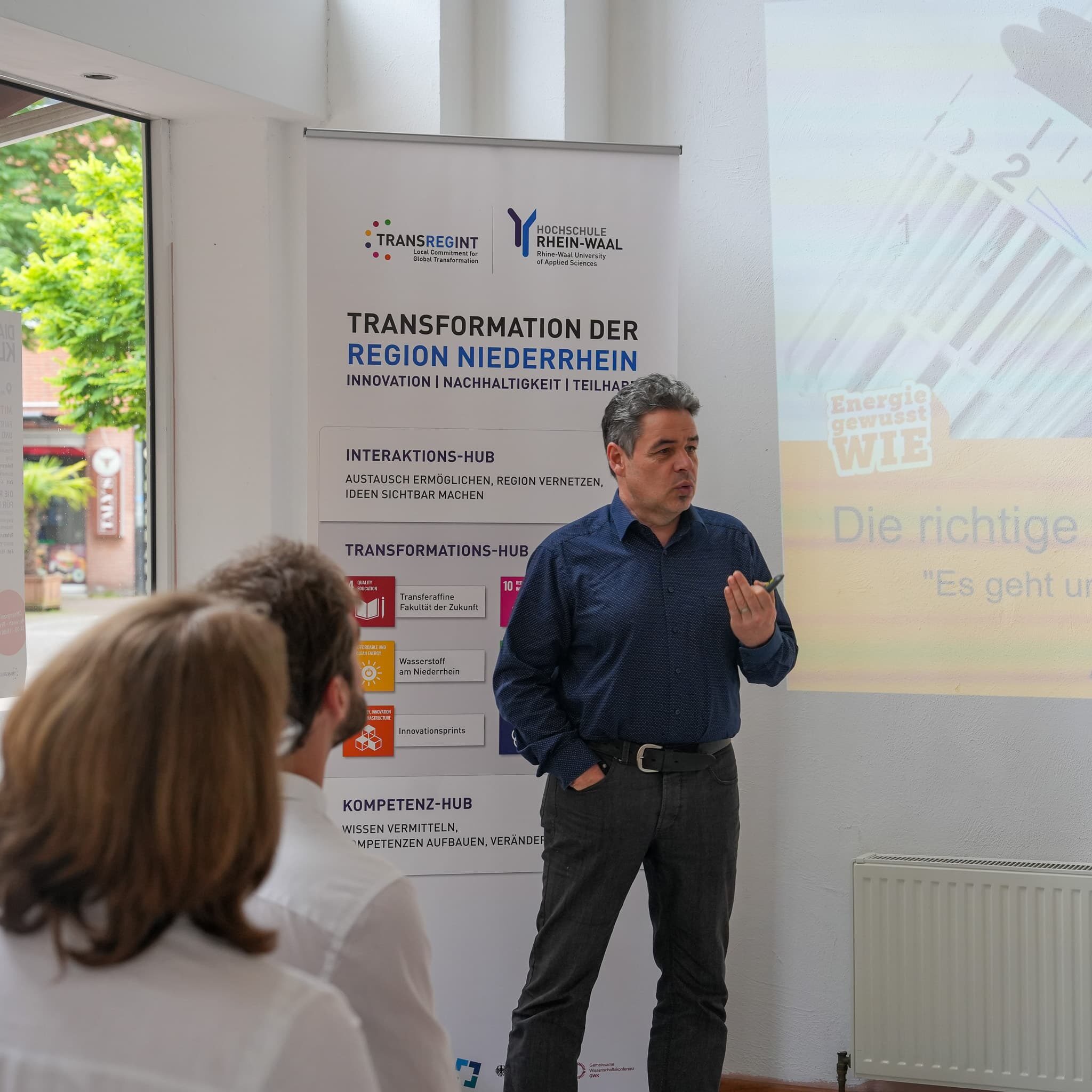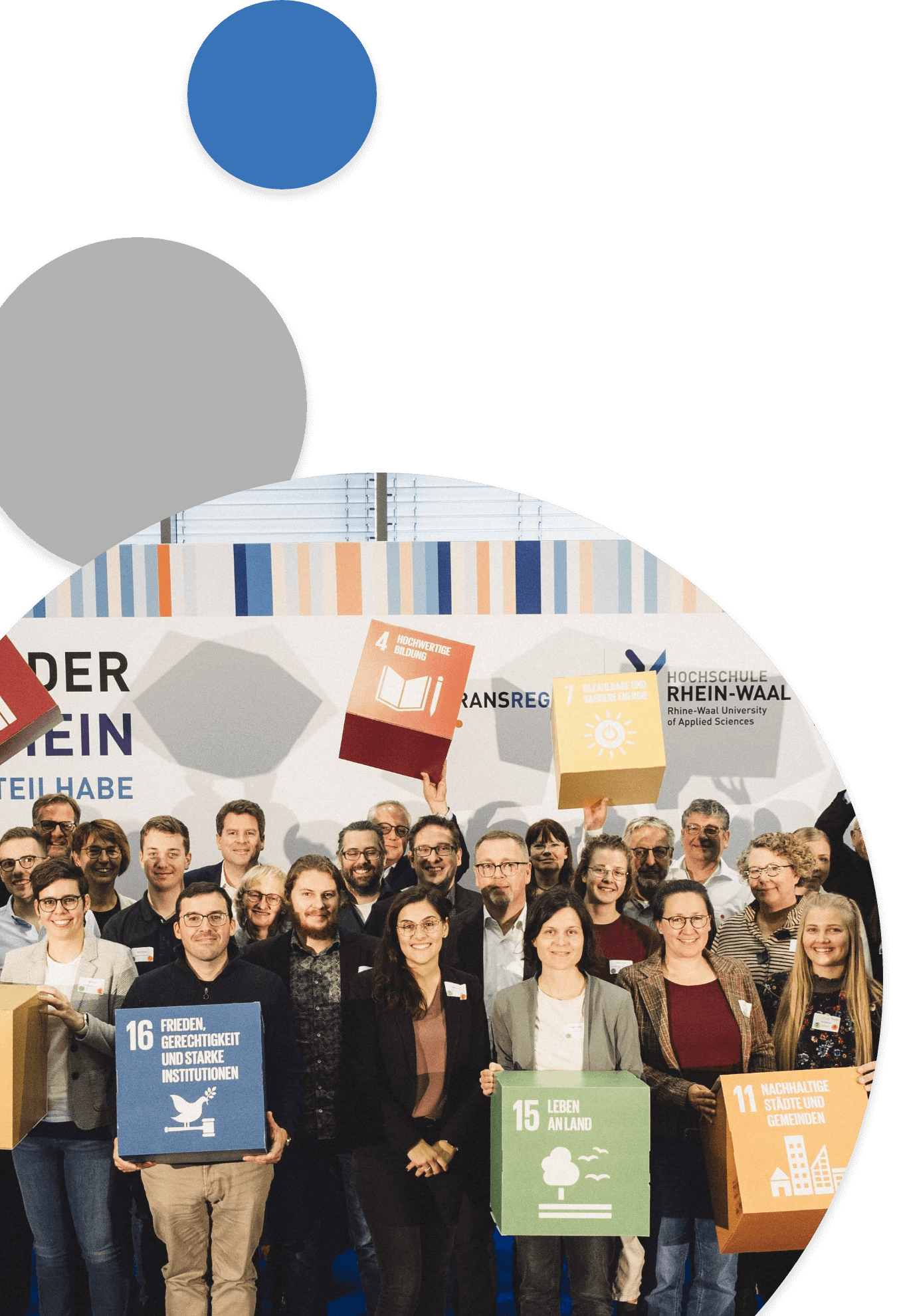
Away from oil & gas – expert explains sustainable heating
The energy transition is in full swing, and in order to make society fit for this change, an informative presentation on sustainable heating was held at DialogPunkt Kleve. The aim was to promote the switch to sustainable heating systems and leave fossil fuels behind. “It’s about the future of our houses and flats with and in the energy transition,” emphasised Akke Wilmes, architect and energy consultant at the NRW consumer advice centre, in his opening speech. Under the motto “The right heating for the energy transition! Heat pumps and alternatives”, he explained to the participants how their own four walls can be heated in a future-proof and environmentally friendly way.
Introduction to the basics
Wilmes began his presentation by introducing the three main areas of the energy transition: Heating, hot water and electricity. An ideal room temperature is around 20°C and the greatest temperature or energy loss in the house comes from five main sources: Roof, exterior walls, doors and windows, basement ceiling and ventilation.
Saving energy: Two ways to reach the goal
There are two main strategies for saving costs and making your home fit for the future: Improve insulation and optimise the heating. But be careful: a big investment does not automatically mean big savings. The decisive difference between the various energy sources lies in the CO2 factor, not necessarily in the energy price.
Efficient heating: small measures, big impact
Wilmes spoke about the challenges and possibilities of modern heating systems and what options there are for making savings. Electronic thermostat controllers, for example, can already save 2-15% energy without much effort or cost.
Hydraulic balancing of the heating system is particularly important, as it is a prerequisite for many funding opportunities, including for heat pumps. Hydraulic balancing ensures that the correct amount of water flows through all radiators, so that rooms are heated evenly. This improves the function of the thermostatic valves and can reduce the energy consumption of heat pumps and condensing boilers.
In addition, new, dynamic heating pumps can save up to 80 % energy.
Insulation: potential in walls, roofs and windows
Good insulation can make the use of heating systems and especially heat pumps more economical and reduce the heating load. This means lower consumption and, ideally, smaller, cheaper systems.
Funding and future plans
There are numerous funding opportunities at federal, state and local level. The NRW consumer advice centre recommends an individual refurbishment plan that is drawn up step by step with a consultant.
The path to an efficient house
“The goal is defined, the path can be chosen,” said Wilmes. Whether heating or insulation comes first depends on the individual situation. It is important to gather information, plan specific measures, obtain quotes, apply for subsidies, supervise the construction work and account for everything properly.
Further information
For further information and individual advice, you can contact the Verbraucherzentrale NRW.
You can find more information about DialogPunkt Kleve here. You can find an overview of all events here.




Kommentare